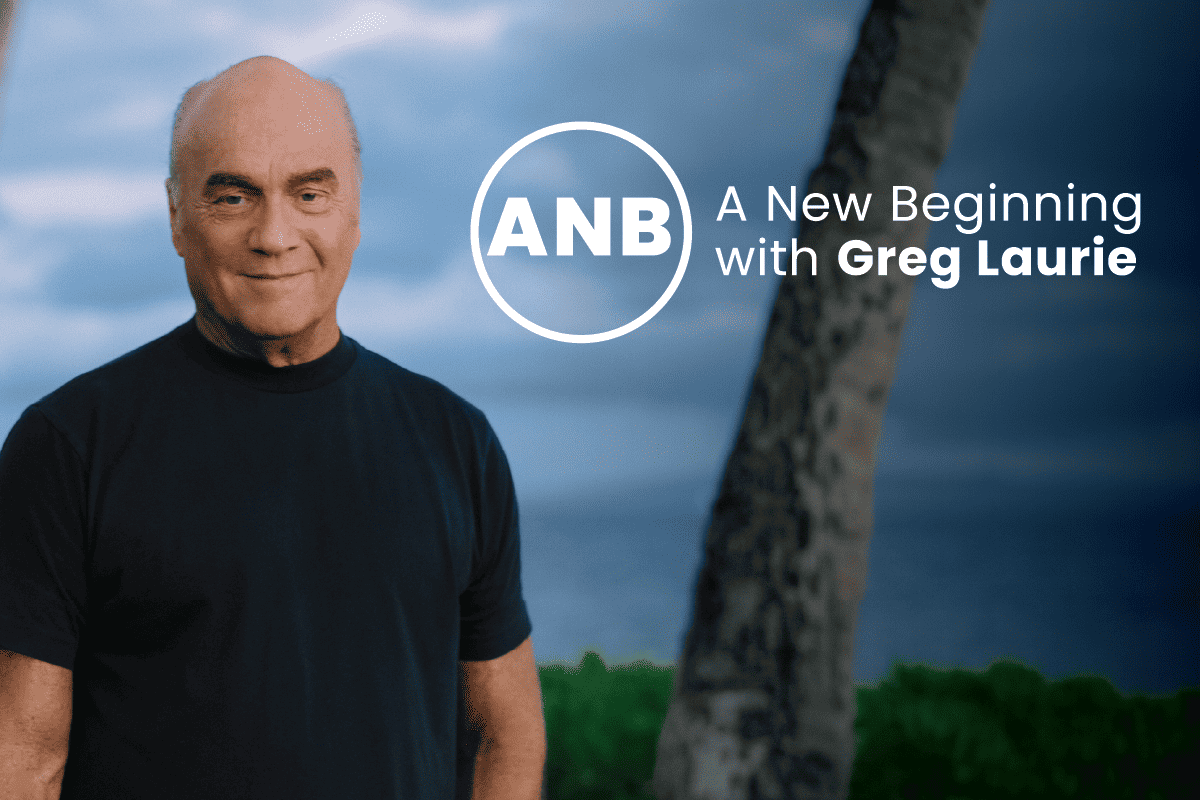I wasn’t raised in the church. But at age 17, after I put my faith in Christ on my high school campus, a very persistent guy named Mark invited me to church. I told him that I didn’t want to go, but he persisted in a friendly way.
He brought me to Calvary Chapel Costa Mesa in the throes of the Jesus Movement. When we walked in, the place was overflowing with young people, and it felt like there was electricity in the air.
It was almost too much for me—too much happiness, too much smiling, and too much hugging and loving. It made me uncomfortable because I was raised in a very dysfunctional home. I didn’t hear the words “I love you” at home. And we didn’t hug in our family.
So I was relieved when I saw the place was full. I thought, “Now I don’t have to go.” But sure enough, someone in the front row saw me, recognized me from the high school Bible study, and waved me over. Then he gave me his seat in the front row. What I didn’t realize at the time was that I had a front-row seat to a genuine revival.
Now, when they sang worship songs during the Jesus Movement days, people would put their arms around each other and sway back and forth. They were singing about love, and it all felt very awkward to me.
But then Pastor Chuck Smith began to speak. I looked at this middle-aged bald man and thought, “This is going to be so boring!” But as he taught from the Bible, it made sense to me. It was relevant to me. And my heart began to change.
I went from being uncomfortable in church to wanting to be there all the time. You couldn’t get me out of the church. I attended every service possible. I wanted to be part of everything and learn as much as I could learn. And two years later, I was planting a church in Riverside.
At the time I didn’t know I was planting a church. I thought I was teaching a Bible study for young people at a local Episcopalian church. But then it began to grow. And pretty soon people were calling me pastor. I thought, “Oh, you mean me? I can’t be your pastor. No.”
I tried to find someone to take over, but I couldn’t. And eventually I realized that God was calling me to be a pastor.
Now I’m the old bald guy. But I’m as committed to the mission of the church as I was on the day I first discovered how wonderful church can be.
I believe that the hope for America is the church—God working through his church. If a nation wants to be healed, here’s what God says: “If My people who are called by My name will humble themselves, and pray and seek My face, and turn from their wicked ways, then I will hear from heaven, and will forgive their sin and heal their land” (2 Chronicles 7:14 NKJV).
Do we want to see our land healed? God is saying, “It starts with My people.”
Christians need to live up to their name. As Christ followers, we need to be Christlike. And if the church would be what it was meant to be, then it would change our nation.
But let’s localize it. If your church would be what it ought to be, it could change your city. It could change your county, and it could change your state. Let’s localize it even more. If you would be what you ought to be as a follower of Jesus Christ and as a part of the church, then what a difference it could make in your church.
Jesus Himself was the first to use the word “church.” He said, “On this rock I will build My church, and the gates of Hades shall not prevail against it” (Matthew 16:19 NKJV).
When Jesus walked this earth, He started only one organization. That, of course, was the church. And by saying “the gates of Hades shall not prevail against it,” He was saying that the church is here to stay. Against all odds, it will prevail.
The word church comes from the Greek word ekklésia. It originates from two other words that mean “out from” and “to call.” Put them together, and the word church means “called out from.”
But called out from what? The church is called out from this world, from this culture. Jesus was saying, “My followers should be separate from this culture.” And not only are we called out from this culture, but we’re also called together—called to God and to each other.
Jesus said, “For where two or three are gathered together in My name, I am there in the midst of them” (Matthew 18:20 NKJV). The church isn’t a building; it’s people.
If we’re glorifying God and building each other up, then we’ll want to share the hope of salvation with others through our loving actions and words. Jesus has told us to go out into this culture as lights in a dark world.
He said, “Let your light so shine before men, that they may see your good works and glorify your Father in heaven” (Matthew 5:16 NKJV). We’re to be lights in our communities and in our world.
But Jesus has also called us to be salt: “You are the salt of the earth; but if the salt loses its flavor, how shall it be seasoned? It is then good for nothing but to be thrown out and trampled underfoot by men” (verse 13 NKJV).
In the ancient world, salt was a preservative. And as Christians, we have a preservative effect in our culture. We stand up for what is right and true. We also vote our consciences, which are informed by our biblical worldview. We make no apology for that.
As followers of Jesus, we’re going to oppose sin. But we also love sinners and want them to come to the Savior. That’s why we’re here.
So instead of critiquing the church and being church connoisseurs, let’s be part of it. And then watch how things will change as God uses us. God wants to use each one of us to touch our communities, our nation, and our world.
—
Learn more about Pastor Greg Laurie.
This article was originally published at WND.com.

Did you pray with Pastor Greg?
To help you get started, we would love to send you a free Bible and other resources to help you grow in your faith.
Get Resources
In thanks for your gift . . .
In times of grief and loss, Jesus offers comfort and healing. Receive Greg Laurie’s Hope for Hurting Hearts and discover how to navigate life’s toughest moments with hope.
Support today!



